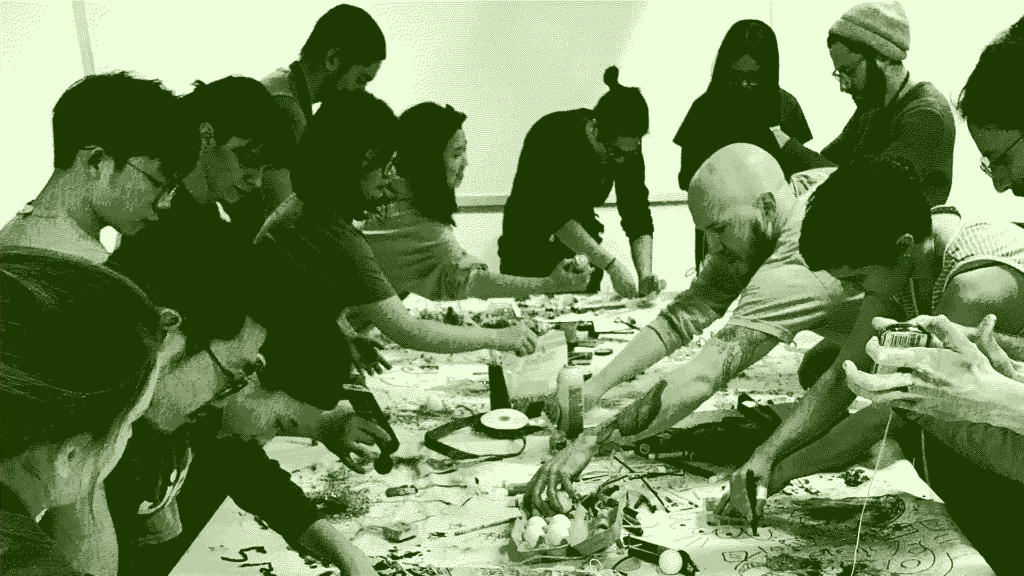
Rules of play shape competitive games from checkers to football. But how do the rules of interaction shape non-competitive play? In this course, we will explore, code and test design strategies for playful group interactions while at the same time interrogating both what it means to play and how individual identities and group behaviors emerge.
Some of the questions we will ask and attempt to answer:
What motivates participation? What hinders it? When does participation become oppressive? What’s the difference between self-consciousness and self-awareness? Who has power? Who doesn’t? Are leaders necessary? What’s the difference between taking turns and engaging in conversation? Is refusing to engage a form of participation? What happens when the slowest person sets the pace?
Interaction inputs we will play with will include: mouse, keyboard, mobile device sensors, and microphone. Outputs will include, visuals, text and sound. We will use p5.js, websockets and node.js for real-time interaction. Class time will be split between group improvisation exercises, playing with and critiquing examples and translating design strategies into code and logic.